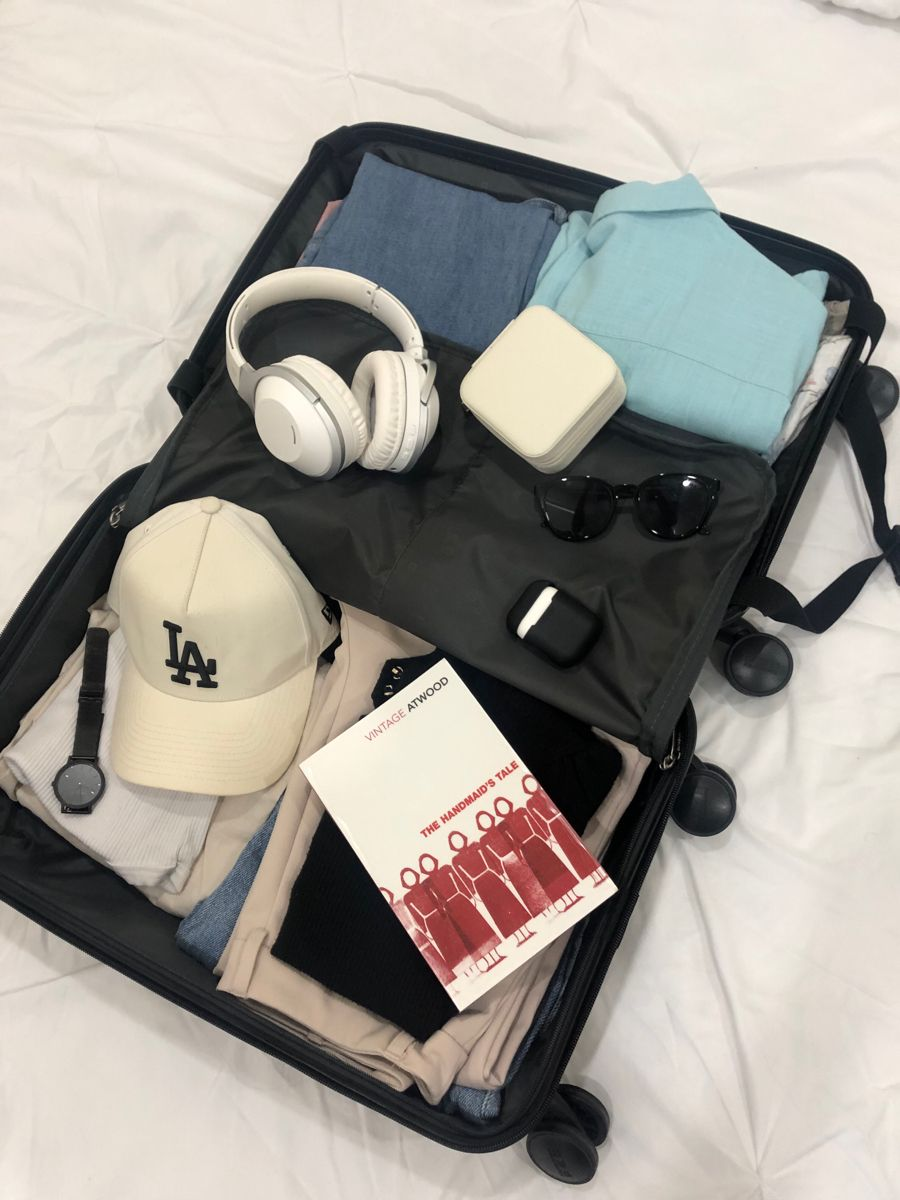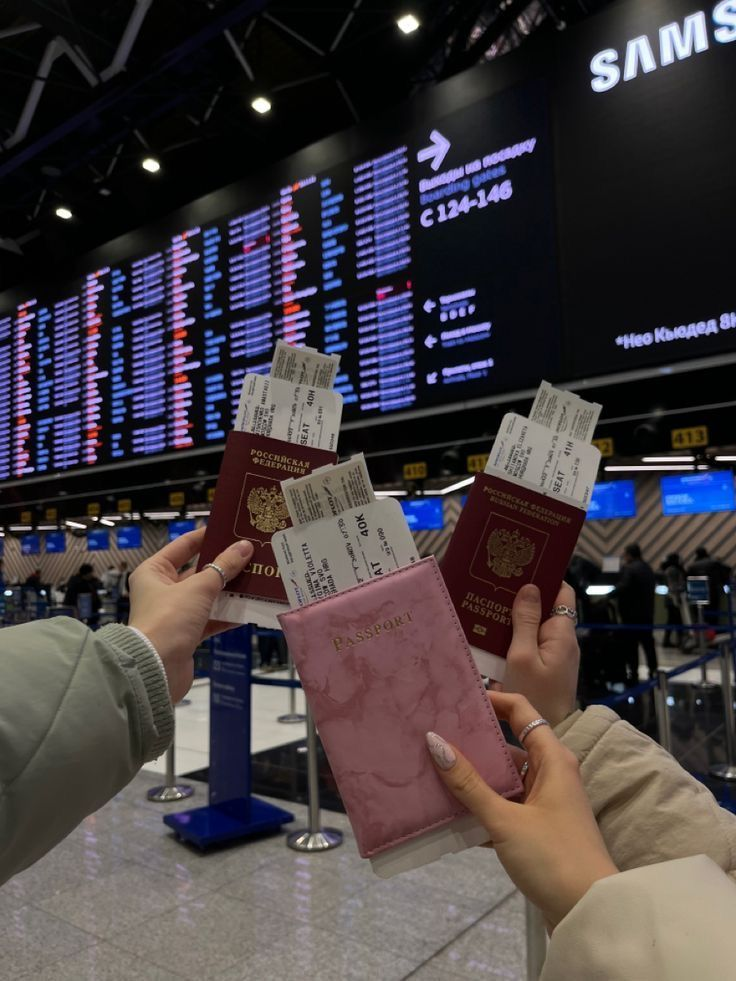Photo AI
Last Updated Sep 26, 2025
Getting Ready to Go Simplified Revision Notes for Junior Cycle French
Revision notes with simplified explanations to understand Getting Ready to Go quickly and effectively.
231+ students studying
Getting Ready to Go
| French | English |
|---|---|
| faire les valises | to pack the suitcases |
| se préparer | to get ready |
| le départ | departure |
| la valise | suitcase |
| les bagages | luggage |
| se laver | to get washed |
| se lever | to get up |
| se réveiller | to wake up |
| se préparer pour le voyage | to prepare for the trip |
| réserver | to book/reserve |
| le vol | flight |
| les billets | tickets |
| l'aéroport | airport |
| la carte d'embarquement | boarding pass |
| l'heure d'arrivée | arrival time |
| French | English |
|---|---|
| les pièces d'identité | identification documents |
| la crème solaire | sun cream |
| la trousse de toilette | toiletry bag |
| l'itinéraire | itinerary |
| les vêtements | clothes |
| le maillot de bain | swimming costume |
| les lunettes de soleil | sunglasses |
| le guide de voyage | travel guide |
| la carte | map |
| l'assurance voyage | travel insurance |
| se reposer avant de partir | to rest before leaving |
| se présenter à l'aéroport | to check in at the airport |
| prendre un taxi | to take a taxi |
| l'heure de départ | departure time |
| se rendre à l'aéroport | to go to the airport |
Useful Phrases:
- Je dois préparer ma valise avant de partir.
I need to pack my suitcase before leaving.
- Nous devons réserver les billets d'avion à l'avance. We need to book the plane tickets in advance.
- Il est important de vérifier les pièces d'identité avant de partir. It's important to check the identification documents before leaving.
- Je vais me lever tôt demain pour ne pas rater le vol. I am going to get up early tomorrow so I don't miss the flight.
- As-tu pensé à prendre la crème solaire ? Did you remember to take the sun cream?
- Je me repose un peu avant le long voyage. I'm resting a bit before the long journey.

Key Questions
- Qu'est-ce que tu fais pour te préparer avant de partir en vacances? (What do you do to prepare before going on holiday?)
- As-tu déjà réservé tes billets et ton logement pour tes prochaines vacances? (Have you already booked your tickets and accommodation for your next holiday?)
- Quels objets sont essentiels pour toi quand tu fais tes valises? (What items are essential for you when you pack your suitcase?)
- Comment te prépares-tu pour un long voyage? (How do you prepare for a long journey?)
- Est-ce que tu vérifies toujours tes documents avant de partir? (Do you always check your documents before leaving?)
- Qu'est-ce que tu fais la veille de ton départ en vacances? (What do you do the day before you leave for your holiday?)
Responses to Key Questions
- Qu'est-ce que tu fais pour te préparer avant de partir en vacances? (What do you do to prepare before going on holiday?)
Avant de partir, je fais une liste pour ne rien oublier. Je fais mes valises avec tous les essentiels comme les vêtements et les produits de toilette. Je vérifie aussi mes documents (passeport, billets, assurance) et je confirme mes réservations de logement et de transport.
Before leaving, I make a list to ensure I don't forget anything. I pack my suitcase with essentials like clothes and toiletries. I also check my documents (passport, tickets, insurance) and confirm my accommodation and transport bookings.
- As-tu déjà réservé tes billets et ton logement pour tes prochaines vacances? (Have you already booked your tickets and accommodation for your next holiday?)
Oui, j'ai réservé mes billets d'avion en ligne pour obtenir de bons tarifs. J'ai aussi choisi un hôtel près de la plage avec petit-déjeuner inclus et piscine, et j'ai confirmé la réservation par téléphone.
Yes, I booked my plane tickets online to get good rates. I also chose a hotel near the beach with breakfast included and a pool, and I confirmed the booking by phone.
- Quels objets sont essentiels pour toi quand tu fais tes valises? (What items are essential for you when you pack your suitcase?)
Les objets essentiels pour moi sont les vêtements, mon téléphone et chargeur, la crème solaire, et bien sûr, mes documents de voyage. J'emporte aussi un livre pour le trajet et un petit kit de premiers secours.
The essential items for me are clothes, my phone and charger, sun cream, and of course, my travel documents. I also bring a book for the trip and a small first aid kit.
- Comment te prépares-tu pour un long voyage? (How do you prepare for a long journey?)
Pour un long voyage, je me repose bien la veille, j'emballe des snacks et de l'eau, et je télécharge des films et des livres sur mon téléphone. Je porte des vêtements confortables pour être à l'aise tout au long du trajet.
For a long journey, I get a good rest the night before, pack snacks and water, and download movies and books on my phone. I wear comfortable clothes to stay relaxed throughout the trip.
- Est-ce que tu vérifies toujours tes documents avant de partir? (Do you always check your documents before leaving?)
Oui, je vérifie toujours mes documents plusieurs fois. Je m'assure d'avoir mon passeport, mes billets, et ma carte d'embarquement, et je garde une copie numérique sur mon téléphone en cas de besoin.
Yes, I always check my documents several times. I make sure I have my passport, tickets, and boarding pass, and I keep a digital copy on my phone just in case.

- Qu'est-ce que tu fais la veille de ton départ en vacances? (What do you do the day before you leave for your holiday?)
La veille de mon départ, je vérifie toutes mes affaires, je confirme mes réservations, et je me repose pour être en forme le lendemain. Je mets aussi mon réveil et je prépare un petit déjeuner rapide pour le matin.
The day before my departure, I check all my things, confirm my bookings, and rest to be in good shape for the next day. I also set my alarm and prepare a quick breakfast for the morning.
Essential Grammar Points:
Reflexive Verbs
Reflexive verbs are essential when discussing getting ready for a trip in French. They involve a reflexive pronoun (me, te, se, nous, vous, se) that indicates the subject is performing the action on themselves. Using reflexive verbs correctly can impress examiners and help boost your exam marks.
Importance in Travel and Tourism
In the context of preparing for a holiday, reflexive verbs are commonly used to describe actions like getting up, getting dressed, and getting ready. They help you accurately discuss your daily routine, which is particularly relevant in the travel and tourism topic.
Reflexive Pronouns
- Je → me (myself)
- Tu → te (yourself)
- Il/Elle/On → se (himself/herself/oneself)
- Nous → nous (ourselves)
- Vous → vous (yourself/yourselves)
- Ils/Elles → se (themselves)
Examples:
- Se préparer (to get ready) Je me prépare pour le voyage.-I am getting ready for the trip.
- Se lever (to get up) Il se lève tôt pour ne pas rater l'avion.-He gets up early so he doesn't miss the plane.
- S'habiller (to get dressed) Elle s'habille rapidement pour ne pas être en retard.- She gets dressed quickly so she won't be late.
Tips for Exams
- Ensure Accuracy: Match the reflexive pronoun with the subject.
- Learn Key Phrases: Memorise versatile reflexive verbs like se préparer, se lever, and s'habiller.
- Practice Regularly: Regular use in writing and speaking will help make reflexive verbs second nature. For more details, refer to our other notes on reflexive verbs!
The Near Future Tense (Le Futur Proche)
The near future tense is essential for discussing what you're going to do soon, making it particularly useful when talking about preparing for a trip. Mastering this tense can enhance your communication skills and impress examiners.
Why It's Important
In the context of travel and tourism, the near future tense allows you to express plans and intentions clearly, which is crucial when describing upcoming actions like packing, booking, or traveling.
Structure: Aller + Infinitive
The near future tense is formed by combining the present tense of the verb aller (to go) with the infinitive form of the main verb.
- Je vais + infinitive (I am going to...)
- Tu vas + infinitive (You are going to...)
- Il/Elle/On va + infinitive (He/She/One is going to...)
- Nous allons + infinitive (We are going to...)
- Vous allez + infinitive (You are going to...)
- Ils/Elles vont + infinitive (They are going to...)
Examples in Travel and Tourism:
- Je vais faire mes valises.- I am going to pack my suitcases.
- Nous allons réserver une chambre d'hôtel.- We are going to book a hotel room.
- Ils vont prendre un taxi pour l'aéroport.- They are going to take a taxi to the airport.
500K+ Students Use These Powerful Tools to Master Getting Ready to Go For their Junior Cycle Exams.
Enhance your understanding with flashcards, quizzes, and exams—designed to help you grasp key concepts, reinforce learning, and master any topic with confidence!
70 flashcards
Flashcards on Getting Ready to Go
Revise key concepts with interactive flashcards.
Try French Flashcards7 quizzes
Quizzes on Getting Ready to Go
Test your knowledge with fun and engaging quizzes.
Try French Quizzes76 questions
Exam questions on Getting Ready to Go
Boost your confidence with real exam questions.
Try French Questions27 exams created
Exam Builder on Getting Ready to Go
Create custom exams across topics for better practice!
Try French exam builder29 papers
Past Papers on Getting Ready to Go
Practice past papers to reinforce exam experience.
Try French Past PapersOther Revision Notes related to Getting Ready to Go you should explore
Discover More Revision Notes Related to Getting Ready to Go to Deepen Your Understanding and Improve Your Mastery
